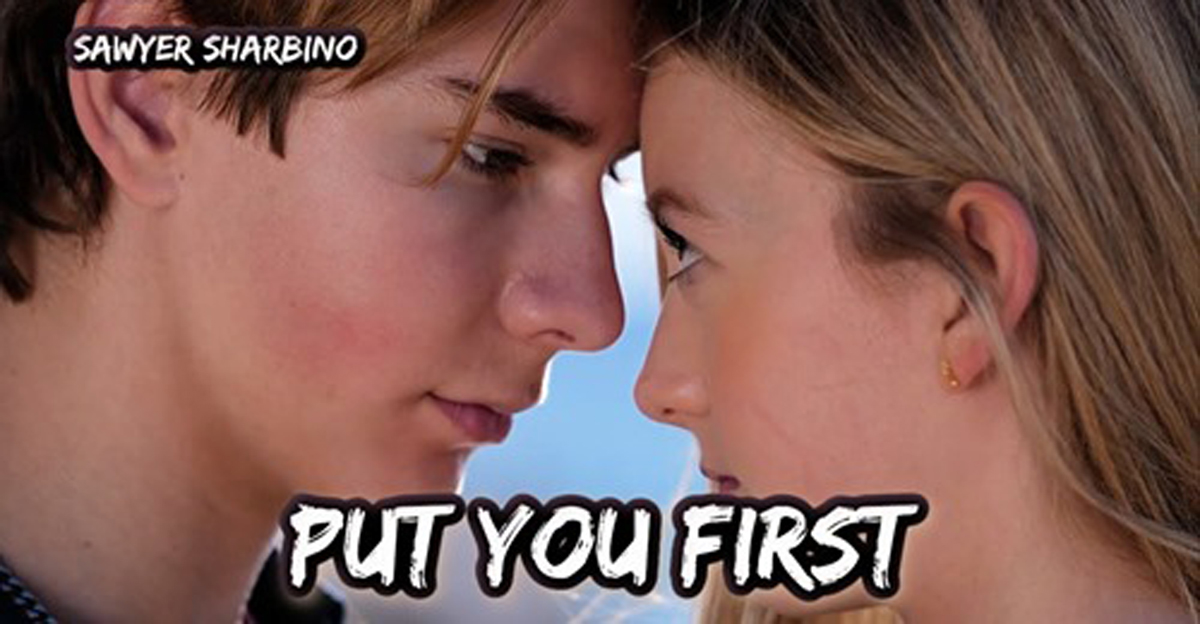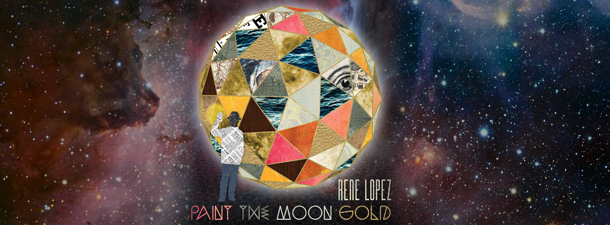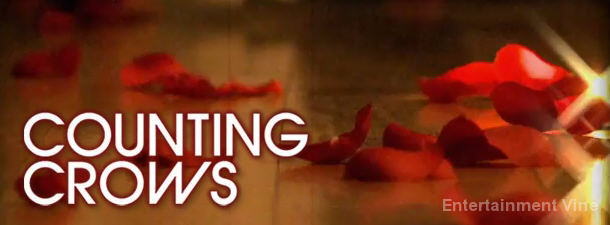8 Questions With Singer-Songwriter Andy Hill
 Welcome to another edition of “8 Questions with…..”, an ongoing interview series by Michael Sullivan that highlights the people that in my MySpace circle of friends. I hope you enjoy reading about the people I interview here and encourage you to add them as a friend or drop a comment.
Welcome to another edition of “8 Questions with…..”, an ongoing interview series by Michael Sullivan that highlights the people that in my MySpace circle of friends. I hope you enjoy reading about the people I interview here and encourage you to add them as a friend or drop a comment.
Not everyone I have on my MySpace is a stranger. I lot a ton of folks who I am friends with and have been for many years,some are artists I have the luck of working with and have been following for years. Andy Hill is one such case. I first met Andy and his lovely partner,Renee Safier back in the late 90’s when I booked a acoustic series at San Jose’s Agenda Lounge. I had gotten a press kit and sometimes when I was at the EDGE,I would listen to the demos. Andy and Renee caught my attention out of the box…they were awesome together,beautiful voice wrapped around some of the best songwriting I had heard in a loooong time. Andy and Renee were looking for a gig and I was lucky enough to have a night open.
The staff was the Agenda was pretty hard edged at the start of the series,after all they had heard some pretty amazing acts at the Agenda….Maynard Ferguson,Andy Summers and other top names in the jazz scene. If you weren’t bringing it,well…..I would hear it later. But halfway thru Andy and Renee’s set,I noticed everyone was paying strict attention..these guys were GREAT.
I have been a fan ever since….Andy Hill is just a great songwriter and one who I would match up with ANYONE alive today. His pen can write about injustice, love, loss, comedy…he can write rock or social commentary and put it into lyrics that stay with you for a long time. While either a duo,soloist or with his band,Hard Rain…Andy is always the total professional.
And now…..8 Questions with Andy Hill.
1.Where do you call home?
AH : In casual situations I usually say Torrance if my interlocutor is local. If they are from out of town, I’ll say L.A. I often find myself saying I’m Canadian, since I was raised just outside of Vancouver, British Columbia.
2.When or what event led you to decide to create music?
AH : No single event. I was a kid who loved music. I was one of those guys who actually called the radio stations and made requests, then listened all day until they played it. I remember calling to hear “Hot Rod Lincoln”, in elementary school.
I am the youngest of four kids, and we all had to take five years of piano. By the time they got to me, my parents were worn down, and let me quit after two years, providing I took up another instrument. I took guitar for a couple of years, until I could strum the basic chords and sing along.
A huge record in our household was “Woodstock”. I was about 10 years old when that one came out, and I remember writing my first lyric around that time. My brother played drums after his emancipation from piano, and had mentioned that if we were ever going to be any good, we’d have to write our own songs. My lyric was to the tune of “Lodi” by Creedence Clearwater Revival.
In grade seven I became a big Elton John fan. His was the first concert I saw, and it was the first time I saw 15,000 people hold up lighters. I didn’t realize that this luminous display happened at all concerts.
A pivotal event in my life was when I looked in a “Good-bye Yellowbrick Road” songbook at a friend’s house and saw that “The Ballad of Danny Bailey” began with a Bm chord. As a seventh grader I knew how to play a Bm on the guitar, but I didn’t yet understand that you could play “chords” on the piano, since my limited experience with piano lessons had been traditional note-reading lessons. I plucked the strings of the Bm chord individually on the guitar, and then found the corresponding notes on the piano, and voila! The first chord to “Danny Bailey”!
The whole world of music opened to me then, and from that moment on you couldn’t keep me away from the piano. Through that same process, pretty soon I could play all the basic chords on piano without thinking, and I began playing songs previously unattainable to me on piano by reading the guitar chords in songbooks. When a chord didn’t sound right to me, I’d call my mother in, who could read music, and she’d play it for me from the notes. I’d memorize that single piece of information and have myself a new chord.
In Junior High School my friends and I used to stand up front at every sock-hop and school dance and watch the guitar player’s hands. Although my ear is much better now, I still think it’s the best way to learn. Eventually, in grade ten, I became school president and distinguished the office by hiring “Heart” to play at our school. I still remember that they played “Space Truckin'”, “Rock and Roll”, “Stairway to Heaven” (Complete with the Wilson Sisters playing flute and recorder in the intro), “Smoke on the Water” and “I Get Around” (by the Beach Boys).
3. How did you meet your performing partner, Renee Safier?
AH: I met Renee during our final year at the University of Denver. I was studying Music, English and Psychology, and she was studying communications. I played in a band back in Canada during the summers, but during the school year my performing was limited to my room, and the odd solo performance at a student union, frat house, or the odd restaurant. Renee, on the other hand was the lead singer in a popular acoustic trio called Sierra. She and the two guitar players were outstanding natural harmony singers, and my girlfriend at the time was a big fan. I went to see them perform at a Holiday Inn. I think I sang “Night Moves” with them that night, and we became friends.
For the year’s final concert I played drums for Sierra and a most unfortunate incident occurred. I lent one of their guitar players my Ovation, and during the show he accidentally wrapped a cable around it as he was walking back to his mic. The guitar got pulled off the stand and the head snapped off the neck when it hit the stage. As a result, we scheduled a couple of fundraiser frat parties to pay for a new guitar. The guy who broke the guitar never did pay me back, but the experience brought Renee and I together for two more gigs.
We graduated a few weeks later, and I moved back to Vancouver. Renee remained in Denver, and we stayed in touch through the mail for the next few years. We both moved to LA independently of one another in late 1985, early 1986. I joined her band initially, and we have been working together in one form or another ever since.
4. What is the hardest part about writing a political or social song versus say, a pop song?
AH: I often hear from writers that the best songs come very quickly, or they wake up in the middle of the night and complete some great work. Almost none of my songs was written quickly. There are a couple, and I’m grateful for that. The rest took forever. They are always hard and frustratingly time-consuming, whether they are political or personal. I suppose I’m referring mostly to the lyrical challenge. Personal songs are difficult because the writer has to shine a light into those recesses which are often protected under layers. We simultaneously want to express, yet keep hidden. It can be embarrassing, painful, etc. to bring certain things to the surface, such as “you hurt me and this admission is further evidence of your power over me”, or “I behaved poorly and hurt you in the process and am ashamed”. Political songs are difficult because governments lie so often that it’s almost impossible to ever know what’s really going on. I write them though from time to time, because Martin Luther King once said, “We must speak with all the humility that is appropriate to our limited vision, but we must speak.”
Then of course, there’s the old catch 22: As writers, we often mistake the tremendous, uplifting feeling at the completion of a song as evidence that the song is good. Later, we realize that we were uplifted simply because we finished something.
5. How did your band, Hard Rain come into being?
AH :Renee and I had been performing as a duo for a number of years since our previous band had split up. A guy named Kevin Hicks began attending our shows, and would bring his bass. He would say something like, “Can I get up and play “We’re not Gonna Take it” (by the Who) with you guys?” We were worried, because usually someone wanting to jam, will suggest the blues or something easy to anticipate. Kevin knew the very complex songs he would request note for note, and after awhile when we would need a full band for a special show, he was the natural call. He badgered us into calling Robert Dill, the drummer from our previous band, and that was our beginning.
6. Bob Dylan is one of your favorites. Do you do anything special to acknowledge him?
AH : We got our band name from his song “It’s a Hard Rains A-Gonna Fall”. One of our 8 CDs is a 14-song Bob Dylan Tribute collection called “It takes A Lot To Laugh”.
For me personally, his were the first songs which were greater than the particular art form in which they were expressed. i.e., You could hum along, you could dance, or rock out etc., but the true value of the work was in it’s relation to the whole world, not to rock music or folk music. I think that’s how Bob probably felt about Woody Guthrie. After Dylan, whom I discovered when a friend gave me “Blood on the Tracks” at age 18, incrementally it became essential to me to try as hard as possible to fill in melodies with something worth speaking and worthy to be heard. I confess that I fall short much of the time, but I try every time.
In 1990, we hosted our first Bob Dylan birthday party. Our band at the time performed an entire night of Bob Dylan songs, 44 in all. Patrons and band members dressed as characters, things and interpretations of Dylan lyrics. You can see lots of pictures of these parties on our website www.andyandrenee.com. 16 years later, we now hold the Festival in a park with about 50-60 musicians, singers, bands, etc. We get through over 60 songs over the 6-hour show, with no repeats. Even after all these years, at every party someone has performed a song that has never been performed at a previous party.
7. Your new album, “Hurricane of the Heart” sounds pretty personal. What was in your heart as you wrote the songs or selected the other songs on the CD?
AH : I admire artists who have a vision for their work. I am envious of their organizational skills. I have a vision for each song as I’m writing it, but when we begin recording an album there isn’t much structure. Since “The 14th of February” back in 1996, all our recordings have followed the same overall gestalt. Renee forces me into the studio, and I try to wriggle out of it. We continue this dialectic until the CD is released to the public.
I’ve always had lots of songs finished for me to sing, but I’m now out of songs for Renee to sing. So between the two of us, we usually select half a dozen for me to sing, and then we raid the catalogs of all our friends to fill out Renee’s share. Then we look at the picture and see if there’s an identifiable thread.
The working title of our latest CD was “Stuck in the Pod”, after the unfortunate incident suffered by Derek Smalls in Spinal Tap, which needs no recapping here, since for your readers who are in bands, the very phrase no doubt conjures up the excruciating feelings from their most humiliating moments on stage. When most of the album was finished, we planned to call it “Waiting on A Train” after the album’s first song. We googled the title and discovered 11 other bands had previously liked the title “Waiting on A Train” too.
As a last resort, I looked at the lyrics to see what our experiences and decisions were reflecting to us. What I saw is that separation and dislocation, both personal and geographical, in my original songs and in the cover songs we had chosen, was the dominant theme. That idea was best expressed in the name of what became the title track, “Hurricane of the Heart”. The track, ironically, is actually a love song in which the hurricane blows away all the psychological structures and debris which had previously made the heart inaccessible.
8. Renee and you have toured quite a lot over the years. Does it ever seem like a grind, a necessary evil? Or do you look forward to touring?
AH : I love it. Touring has the great capacity of cutting you off from all the diversions that separate you on a daily basis from attending to your music. Having said that, although we have been to many countries, including Canada, Ireland, Italy, and Thailand, and across the US, we actually haven’t spent that much time on the road. We both wish we could tour more often. We sell many more CDs when we’re on the road. Unfortunately, our strengths are in writing and performing, and less in booking and networking.
9. Do you consider yourself a social activist?
AH : No. I attend anti war rallies, and my politics are pretty obvious. I recently took my 5-year old son to a rally where he got to touch the grandson of Mahatma Gandhi. I vote, which I suspect under the current administration will soon be considered unpatriotic. But I have not yet become committed to things on the kind of ongoing basis which I would describe as activism. Since the birth of my son, I think about it a lot more, and musically, we always accept invitations to perform for good causes.
10. You have won many awards in your career. Which one are you most proud of?
AH :I don’t think of them very much. Usually they are more a result of diligent work on Renee’s part to enter contests than of an inherent value in the work itself. It makes me happy if we win something, but there’s always something just slightly embarrassing about it too.
11. Where do you see Andy Hill in 5 years?
As I said earlier, I admire artists who have a vision…
For more info,please check out
Like this interview? See others like it by going here:


